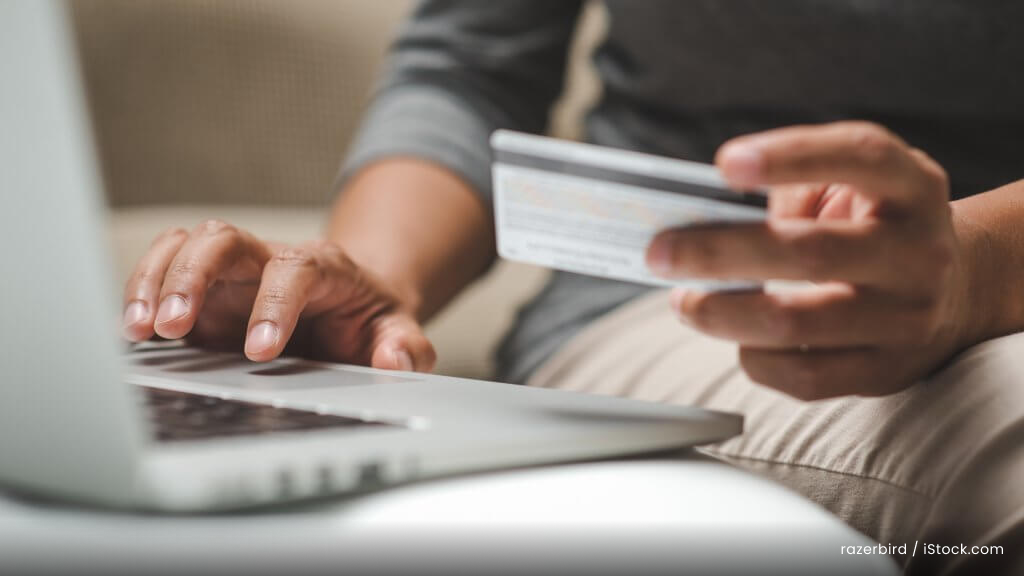7 Ways To Turn Your Credit Card Into a Budgeting Tool

When people hear credit card perks, they typically think about points, miles, cash back or swanky travel benefits. But credit cards also come with features that can help you manage your money and avoid financial missteps. Here are seven ways to turn your credit card into a standout budgeting tool.
Check Out: 8 Smart Habits Every Credit Card User Should Know
Discover: Ways To Elevate Your Summer Travel Adventures

400+ Credit Cards
Analyzed independently across 50+ data points in 30+ product categories

Reviewed
By a team of credit card experts with an average of 9+ years of experience

Trusted by
More than one million monthly readers seeking unbiased credit card guidance
CardCritics™ editorial team is dedicated to providing unbiased credit card reviews, advice and comprehensive comparisons. Our team of credit card experts uses rigorous data-driven methodologies to evaluate every card feature, fee structure and rewards program. In most instances, our experts are longtime members or holders of the very programs and cards they review, so they have firsthand experience maximizing them. We maintain complete editorial independence — our ratings and recommendations are never influenced by advertiser relationships or affiliate partnerships. You can learn more about our editorial standards, transparent review process and how we make money to understand how we help you make informed financial decisions.
Track Your Spending
“Credit card accounts offer visibility for consumers to evaluate where their money is going by offering detailed spending breakdowns,” said Leslie H. Tayne, debt relief attorney and founder of Tayne Law Group. “This can help users identify spending patterns and habits that need attention.”
Many issuers offer sophisticated free spending trackers or budgeting tools that help you readily identify recurring charges, monitor expenses and set savings goals. Some tools even integrate with other financial accounts to provide a detailed view of your spending habits.
Monitor and Build Credit
Responsible credit card use helps you establish a strong payment history and maintain a good credit utilization rate, the top two components that contribute to your credit score.
Some issuers also provide you with free access to your credit score, alongside a summary of your credit report, helping you easily see if and how you can improve.
Good credit is instrumental to your budget and overall financial health, as it helps you qualify for better loan rates, insurance premiums, utility bills, rental agreements and more.
To build good credit with credit cards, pay all bills on time, keep balances below at least 30% of your credit limits, and space out card applications.
Set Up Alerts
Issuers offer several card account activity alerts that can help you stay on budget, including:
- Single purchase alerts, sent whenever a transaction exceeds a set spending limit
- Daily total spending alert, sent when your daily transactions exceed a set spending limit
- Approaching credit limit alert, sent when your balance gets within a certain amount of your credit limit
- Payment reminders, sent when you are near a bill’s due date
- Security alerts, triggered whenever the issuer spots unusual spending activity
You can typically set up account activity alerts, sent via text or email, through your credit card’s app or online account.
Put Your Spending on ‘Lock’
Many issuers offer a lock feature that allows you to temporarily turn off a credit card. This move prevents new purchases by you or any authorized users.
It’s often used for fraud prevention if a card is lost or stolen, but the feature can also help you curb unnecessary spending if you feel balances are rising too high. (In other words, think of it as the digital and much simpler version of freezing your credit card in a block of ice.)
Keep in mind that interest still accrues on outstanding balances while a card is locked.
Treat Rewards Like Extra Income
Credit card rewards can keep you from going over budget or help you lower the cost of a big purchase, so long as you don’t revolve a balance and ultimately pay interest.
Top travel credit cards, for instance, can help you cover a flight or hotel stay with earned points, miles, or airline and hotel credits. Alternatively, you can redeem cash back for statement credits, checks, direct deposits, or gift cards.
Better Manage Your Cash Flow
Most credit cards utilize a 30-day billing cycle, meaning they can provide short-term liquidity if and when you’re juggling fluctuating income streams.
“Charging most of your expenses and then making one payment can help deal with changing pay dates or pay amounts,” said Ashley Morgan, a debt and bankruptcy lawyer in Virginia.
Of course, you’ll want to avoid carrying a balance from month to month so you don’t incur interest.
The “best way to consider the card is like [it] being a monthly debit card,” Morgan said. So, “basically, budgeting and making sure your card is paid in full each month.”
Autopay Your Bills
You can set up automatic payments so you never miss a credit card bill (and incur interest, late payment fees or credit score consequences) through your issuer app or online account.
This process typically involves linking a checking or debit card account to your credit card and specifying whether you want to pay the minimum, the full balance or a set amount on or before your due date.
You can also use your credit card to autopay your major monthly expenses, like your cellphone, cable or utility bills, so, again, you don’t incur late fees or risk losing service. (If you have a rewards credit card, this practice lets you earn points, miles, or cash back on these purchases.)
Again, be sure to pay off any balances before your credit card’s due date so you don’t lose any savings to interest.
More From CardCritics™













